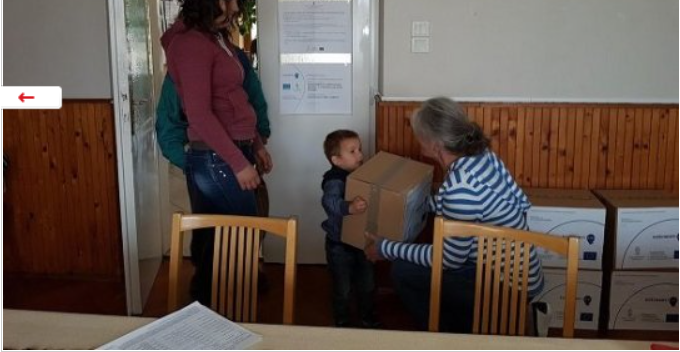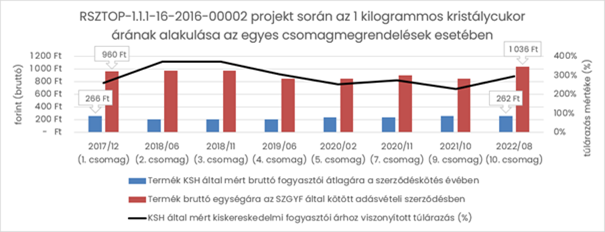Profiteering at the expense of the poor – the investigation into the Operational Programme for Supporting Socially Disadvantaged Persons has been concluded
Cikk publikálásának ideje:

The Integrity Authority is filing a complaint for budget fraud and money laundering committed in a criminal organisation, mismanagement, and agreement in restraint of competition in public procurement procedures, following the conclusion of its investigation into four EU-funded projects conducted under the Operational Programme for Supporting Socially Disadvantaged Persons (RSZTOP). The investigation has confirmed overpricing in two of the four projects, amounting to a total of HUF 10.2 billion. The Directorate General for Social Affairs and Child Protection (DGSACS), the beneficiary of the grant, worked together with suppliers that charged extremely high rates for basic food commodities. Moreover, three tenderers may potentially have engaged in collusive practices during the public procurement procedure to determine the prices of the products to be procured.
Based on its procedures, the Authority believes that the consortium led by Halker Kft. harmed socially disadvantaged people by overpricing one of the projects (RSZTOP-1.1.1-16-2016-00002) by 70%, totaling HUF 7.6 billion gross, while Káta-Mill Plusz Kft. harmed socially disadvantaged groups by overpricing the other project (RSZTOP-4.1.1.-16-2017-00001) by 37%, or HUF 2.6 billion.
The Authority’s assessment indicates that these companies bear the main responsibility for the 1.4 million fewer packages distributed to socially disadvantaged groups, marking a 38% decrease. Owing to mismanagement, only 2.3 million packages were distributed instead of 3.7 million.
The extent of overpricing is well illustrated by the following chart, which shows that the DGSACS purchased 1 kg bags of granulated sugar intended for the food packages at a price nearly five times the gross consumer price as measured by the HCSO. One-kilogram bags of granulated sugar, priced at an average of HUF 266 per unit, were purchased for HUF 960 each at the outset of the programme. Five years later, its price rose to HUF 1,036 (compared to the average price of HUF 262 during that period).

“Social outrage is justified when one considers that the individuals who engaged in the misuse of resources profiteered at the expense of the most vulnerable people in need of help, namely the elderly and the poor. The network led by the two companies practically stole HUF 10.2 billion from the poor. This case is a prime example of what I often stress to the public: the detrimental impact of the abuse of authority and corruption predominantly affects the most vulnerable layers of society. Sadly, this case will probably go down as one of the many instances where the perpetrators and the stolen money will have disappeared into thin air by the time significant progress is made”, said Ferenc Biró, President of the Integrity Authority, regarding the outcome of the investigation, who continued by adding, “With adequate powers, the Authority will be able to uncover these cases, conduct these procedures, recover the stolen money, and assist in holding the culprits accountable in a timely and comprehensive fashion. This is why it is essential to resolve the issue concerning the Authority’s powers as soon as possible.”
The four investigated projects related to the DGSACS received a total of HUF 31.2 billion in grants, with 85% of this amount provided by the European Union. The implementation period of the projects in question lasted from 1 October 2016 to 31 December 2023.
Details of the far-reaching illegalities, along with other findings and recommendations from the Integrity Authority are available in the investigation summary published on the Authority’s website.

